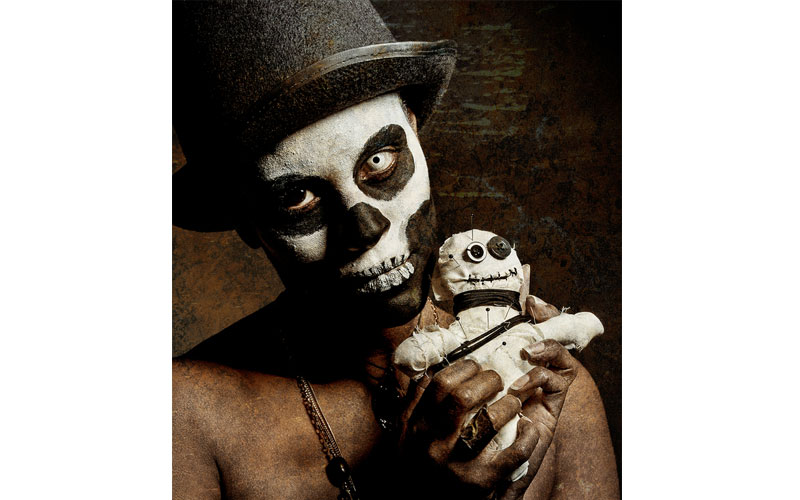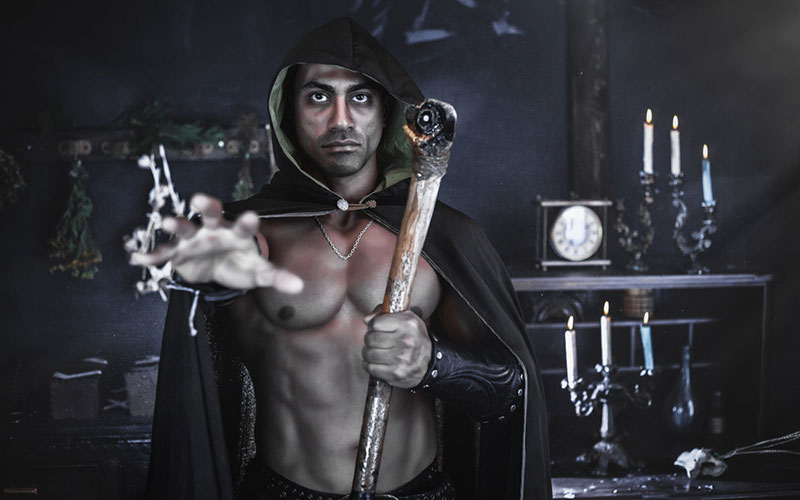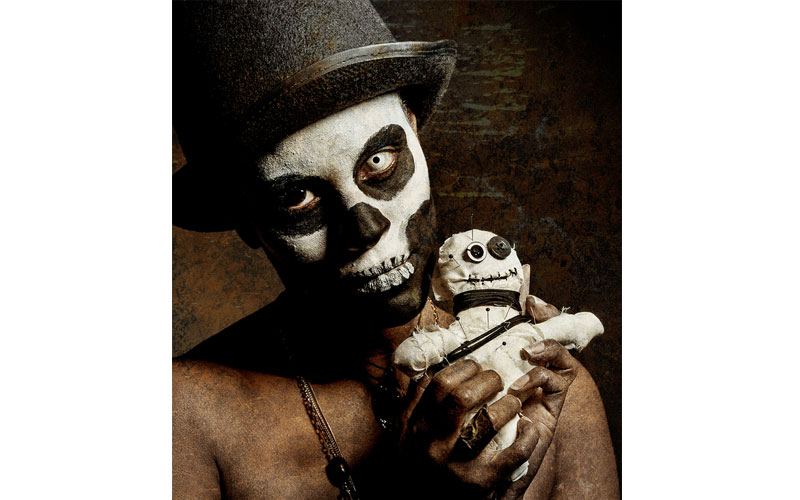
Steve, a church elder, recently bought a car and took it to a mganga in Nyamira who performed what can easily pass for ‘satanic rituals’ to guard it against theft, accidents and general bad luck.
The whole idea is contradictory to what the scriptures he follows say and begs the question as to how committed Kenyans are to their faiths in a land beaming with superstitions.
“We Africans are more superstitious than we are religious despite masquerading as staunchly spiritual. Almost everybody has certain beliefs, which they assume brings good or bad lack. In Tanzania, for instance, people with albinism are targeted and killed with their body parts harvested and used for rituals since it is believed they can attract wealth,” Godwin Amwayi, a driver in Nairobi, opines.
Amwayi says that in almost all Kenyan tribes the owl is associated with bad omen, thus if someone spots the ugly bird in their compound, they must brace themselves for a funeral. “It is believed that chasing the owl away after seeing it by throwing salt or a burning charcoal will help to counteract the upcoming death,” laughs Amayi.
Indeed, Kenyans have very weird beliefs. For instance, it is believed that when you are somewhere gossiping about someone and they show up, he or she will live longer. Did you know that when your right eye twitches, it very likely that you will see someone you haven’t seen in a long time?
“Where I come from in Western Kenya, locals say when your left palm itches, it means you will get unexpected money, especially one you have not worked for. And if you sweep your house at night it means you are chasing away your blessings,” chuckles Amwayi.
Don’t we all believe that if a black cat crosses one’s path, they have to go back home and start the journey afresh or risk a bad omen that day? Among the Kikuyus, if you circle a mugumo tree seven times you will automatically change your gender.
“If you cut down a mugumo tree without consulting Kikuyu elders, you instantly attract bad omen while if a mugumo tree naturally fells down it portends a change of leadership,” says Alice Wambui, a hair stylist, adding she has heard of many other superstitious beliefs.
“Among the Kalenjin, some believe that if a fly buzzes around your living room at night for unusually long, you will soon have important visitors. At the Coast, many believe that if you hit young woman with a broom they will lack dowry,” laughs Wambui, wondering loud: “Do you know that there are people in my village who don’t shake women’s hands in the morning?”

Horrible things are done to a lot of food stuffs before they are sold to us, especially in the open air markets. For instance, a nasty tale is often told of how some women repeatedly spit on simsims, among other foods, in a ritualistic act aimed at attracting more customers.
“Stories, too, have been told of how some female vendors, especially in my rural home, who literally sit on chapatis with their bare bottoms, one by one, before selling them to unsuspecting customers,” says Ken Oketch, a city nurse who hails from Busia County.
All this madness is done in the name of attracting and permanently ensnaring customers and making them buy in large quantities. The ritual of sitting on chapatis is also apparently used by some wives when they want to stop their husbands from straying.
However, Crazy Monday nosed around and discovered that such superstitious rituals are not just a Kenyan thing. In his memoirs, Donald Regan, former White House Chief of Staff to President Ronald Reagan, shared an insider’s view of the presidency.
He revealed that the First Lady Nancy Reagan had employed an astrologer to advise her on a wide range of topics, many of which bore directly on the affairs of state.
“Virtually every major move and decision the Reagans made during my time as White House Chief of Staff was cleared in advance with a woman in San Francisco who drew up horoscopes to make certain that the planets were in a favorable alignment for the enterprise,” the then White House operative wrote.
He claimed that Mrs Reagan, “insisted on being consulted on the timing of every Presidential appearance and action so that she could consult her friend in San Francisco about the astrological factor.”
Suggestions that certain days were ‘bad’ for the president led to the cancellation of speeches and press conferences and, on occasion, the curtailment of all travel for days at a time.
Donald confesses he never discussed the issue with the president, so he was uncertain whether Reagan knew the extent to which his administration had been controlled by the alignment of the stars.
Mrs Reagan undoubtedly felt she needed all the help she could get to ensure her husband’s safety, and her background had led her to feel that astrology was a valid response to the vagaries of life.

In her own memoir, ‘My Turn’, Mrs Reagan admitted that, after the attempt on the president’s life in March 1981, she had regularly consulted astrologer Joan Quigley about her husband’s schedule, but she maintained that “Joan’s recommendations had nothing to do with policy or politics.”
This issue was a substantial embarrassment for the Reagan administration. So much so that Mrs. Reagan devoted an entire chapter of her book to explaining her actions. Understandably, she admitted to fearing for her husband’s life.
Closer home, we all see presidents with trade mark fly whisks, rungus and even suits and shirts that are believed to have superstitious meanings. That Africa is a traditional stronghold of superstition is an open secret.
Most common folk wisdom holds that a number of subcultures are by nature particularly superstitious. These people are said to practice superstitions that are either unique to or characteristic of, their group.
A keen observation will reveal that we have many superstitious groups, especially where uncertainty is an integral part of the activity like in sports, exams and businesses.
Tales have, for instance, been reported of local sportsmen who smoke weed to remain energized or tie lucky charms or talismans on their wrists to bring them good luck. In Kakamega, bulls are forced to inhale bangi smoke before fights.
Others, especially footballers during substitutions, always jog as they get on the pitch with one leg for a few seconds. Some touch the soil before running onto the pitch and when they hit the ball hits the cross bar, the player has to touch the crossbar thrice.
The anxiety that examinations bring has seen some students engage in superstitious activities like crossing their fingers to stop themselves from stumbling on tough exam questions.
“A common superstitions among students involves clothing during exams. I had a roommate who always wore an old scarf that he claimed ‘carried parts of my brain in it’ during exams,” say Philip Kwama, adding that his roommate strongly believed the scarf improved his performance.
We were also told of cases where some students insist on the use of special pens, which they specifically keep and use for exams because they bring good luck.
“Some students use common talismans on their wrists. But when it comes to superstitious, ritualistic, or magical acts aimed at bringing good luck, the overwhelming favorite is prayer. Even some non-religious students pray prior to exams,” says Kwama.
Richard Oduor, a teacher, says he has seen students engage in all kinds of superstitious activities, especially before exams.
“I have seen some students knock on the exam room door three times before entering. Others step over the threshold of the exam room with their right foot, or run around the exam room building,” he says.
In other instances, some students listen to “lucky songs”. A colleague to this writer told us he used to listen to Martin Luther King’s ‘I have a dream’ speech before every exam.
Like any other game of chances, local sports betting fanatics, too, have superstitious rituals they engage in before placing bets.
 The Standard Group Plc is a multi-media organization with investments in media
platforms spanning newspaper print
operations, television, radio broadcasting, digital and online services. The
Standard Group is recognized as a
leading multi-media house in Kenya with a key influence in matters of national and
international interest.
The Standard Group Plc is a multi-media organization with investments in media
platforms spanning newspaper print
operations, television, radio broadcasting, digital and online services. The
Standard Group is recognized as a
leading multi-media house in Kenya with a key influence in matters of national and
international interest.
